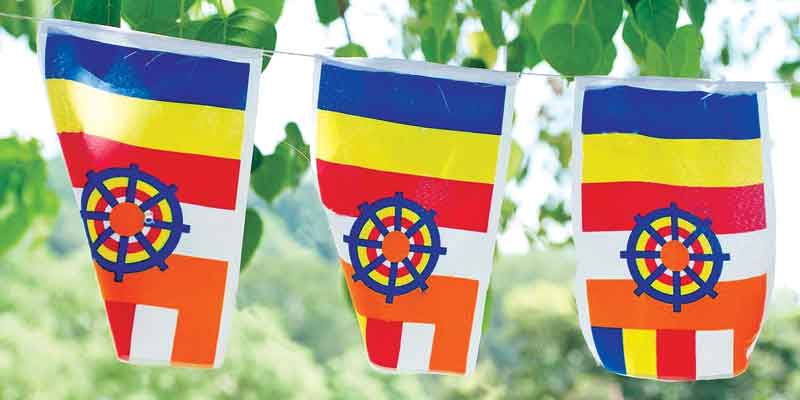The teaching of the Buddha was addressed to many groups of people in society with varied goals and ambitions. While some of his followers were keen on attaining the ultimate goal of ending suffering by renouncing all worldly ties, there were others, perhaps, who constituted the majority, who wished to live a happy, contented and fulfilling life meeting their all social obligations.
The Buddha taught them how to live a good family and social life enjoying what they earned from righteous means. In these teachings we find the Buddha addressing issues that would usually come under the modern concept of justice, in particular, the concept of social justice.
Insights found mainly in the Basket of Discipline (Vinaya Pitaka) testify to the existence among Buddhists of a sophisticated tradition of juriprudence and natural justice.
What the Buddha taught on social issues in general and what he taught on justice, in both social and legal sense, need to be highlighted, so that the teachings of the Buddha may become an antidote to the social ills prevalent in society today.
Inner and outer peace
In Buddhism, peace, intimately associated with justice, is understood in a broader sense to include both inner and outer peace, and peace as absence of conflict and peace as a positive quality of individual and of society. In order to ensure that peace is sustained it is necessary that individuals have inner peace developed with mindfulness.
This, however, does not mean that Buddhism neglects social and structural aspects of securing peace among large entities such as societies, nations and finally, the entire world. In the context of the present day world, it is crucial that peace and understanding among religions or among the followers of religions be given priority. It is the duty of the Buddhists to elucidate the Buddha's insights on social justice and peace and also elaborate on the vast historical experiences of the Buddhist societies in South, Southeast, and East Asia where Buddhism has been practiced by millions of people for over two millennia.
Economic well-being of all Buddhist communities
What lies behind the Buddhist concern for justice and peace is the idea of well-being of all sentient beings within which includes economic well-being without which the whole concept of well-being will lose its significance.
 Today there is a need to go beyond academic discussions of economics, and explore possibilities of promoting economic well-being of all Buddhist communities by all Buddhist communities.
Today there is a need to go beyond academic discussions of economics, and explore possibilities of promoting economic well-being of all Buddhist communities by all Buddhist communities.
The perennial Buddhist prayer ‘May all beings be happy’ (sabbe satta bhavantu sukhisatta) exemplifies the Buddhist aspiration for the well-being of all beings, transcending all barriers and limitations, has remained the goal of Buddhism from the day of its inception for the celebration of which the UN Day of Vesak has been dedicated.
Finally in this era of sophisticated mass communication it is very important that Buddhists review the current state of their modes of communication and the institutes and individuals engaged in communication. In the arena of communication and use of mass media Buddhists need to share their experiences with one another and explore ways and means to make the maximum use of the modern technological innovations.
Keeping this broad vision in perspective the conference will focus on the following four themes:
(I) Social and natural justice in the Buddhist perspective
(II) Inter-religious understanding of common future for the humankind
(III) Buddhist forum for economics and promotion of cultural tourism
(IV) International Buddhist media network
The conference will devote an entire session for papers dealing with multiple aspects of social justice and a round-table symposium will be held for each of the other themes.
The paper presenters and resource persons for the proposed themes will be invited. All participants of UN Vesak 2017 celebrations are encouraged to take part in sessions of their choice and contribute to the discussion and action plans that will ensue.
Courtesy: UN Vesak 2017,
Buddha Sasana Ministry



There is 1 Comment
Good article
Add new comment